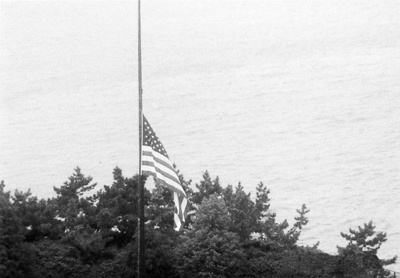All Nonfiction
- Bullying
- Books
- Academic
- Author Interviews
- Celebrity interviews
- College Articles
- College Essays
- Educator of the Year
- Heroes
- Interviews
- Memoir
- Personal Experience
- Sports
- Travel & Culture
All Opinions
- Bullying
- Current Events / Politics
- Discrimination
- Drugs / Alcohol / Smoking
- Entertainment / Celebrities
- Environment
- Love / Relationships
- Movies / Music / TV
- Pop Culture / Trends
- School / College
- Social Issues / Civics
- Spirituality / Religion
- Sports / Hobbies
All Hot Topics
- Bullying
- Community Service
- Environment
- Health
- Letters to the Editor
- Pride & Prejudice
- What Matters
- Back
Summer Guide
- Program Links
- Program Reviews
- Back
College Guide
- College Links
- College Reviews
- College Essays
- College Articles
- Back
Golden Letters MAG
I was too short in years and too naive in emotions to absorb the symbolism of the black wall in front of me that steamy July day in Washington, D.C., but what I could not fail to grasp was the deep sadness in my father’s eyes. His hand was the first thing I noticed. The massive rock of a hand I had seized for support so many times now fell limp and disengaged from mine as he began his search for John D. Heflin, 1967, Panel 25E, line 84.
All I knew about the Vietnam War was a faded green uniform and bowed boots in my father’s closet. But what a memory-rushed place the memorial represented. Names lined up row after row and column after column for what seemed like miles on spotless black granite staring back at me, into me. The wall started as a crescendo where only a handful of men were lost at the beginning, but reached a climax of ten-foot-high panels, then took an 80-degree turn that created a boomerang shape, and finished in a decrescendo to those killed during the final years. The more the millions of golden letters scanned through my mind, the more convinced I became that the lost men stared back at me, as if it were actually I who stood within the abyss peering out at them.
“It’s here, Case.”
My father’s voice shook my intent stance, my nose inches from the wall. When I approached him, he stood, hands in his pockets, in a staring contest with the letters. Perhaps within his creased forehead, he innocently hoped to knock the wall down with his glare and free the lives encased in its granite. If the wall did not exist, then neither did the loss, neither did his loss. But the names remained, the time still passed, and his best friend had still died.
That was the first time I ever saw my father lost to his emotions. He did not cry, for the tears were long ago spent, but his eyes reflected his ache. He portrayed a duality in his nature. My father was no longer simply a man of comedy, but one of sensitivity, too. My eyes darted back and forth from the wall to him, wondering how this granite mass could expose such truth in a person. But what I found physically in the stone is not capable of human emotion; it is what the object represents and the memories it triggers that truly give it spirit to inspire. The rages of war were not found there, for forcefulness and hate cannot conquer what is truly at peace.
So I replaced my hand into my father’s as an offering of support, and we walked through the heat into the cool breeze together.


0 articles 0 photos 12292 comments